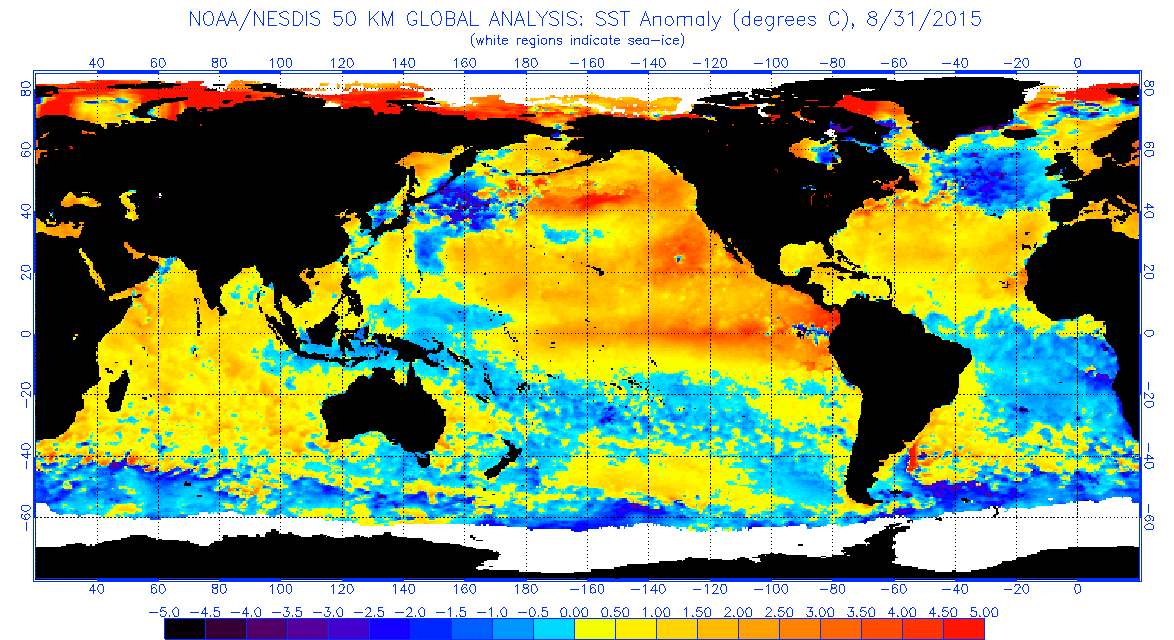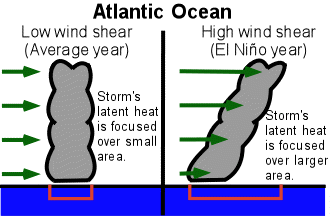Tom wrote a post about this tv show, and I wrote a comment about it. Look it over and let me know what you think https://thelukewarmersway.wordpress.com/2015/08/29/earth-2100-a-look-back/comment-page-1/#comment-8659
Comment on Week in review – energy and policy edition by fernandoleanme
Comment on Climate Change, Epistemic Trust, and Expert Trustworthiness by JCH
Ridiculous.
red: 30-years through 1998 = .0175C per year
Warming increased in the 21st century… after 1998. Got stronger. Indisputable:
green: 30-years through 2006 = .0181C per year
After the 2008, 2011, and 2012 La Nina episodes, and the PDO’s brief foray into negative territory, the pause had reduced the trend:
blue: 30-year trend through 2012 = .0169C per year.
Since then the lengthy period of mostly negative ENSO neutral and the return of the positive phase of the PDO has bled out the strength of the pause. It has virtually ended the collapse of the 30-year trend:
purple: 30-year trend through 2015.58 = .0165C per year.
And the El Nino of 2015-2016 will knock it back above .169C, at which time the great white hope of the great white dopes, will no longer be able to fog a mirror. The “pause” will be unequivocally paws up.
Do I trust the merchants of the pause? H no. They’re like vampires about to be caught out in the sun. Bye bye pausers.
You can can even sea this vampire pause killing zone from outer space:
This:
Fries this:
Oh, and the AMO is mostly completely irrelevant. Not going to save you guys.
Comment on Hurricanes and global warming: 10 years post Katrina by Joseph
Yeah I wonder why it might be the warmest? hmm I think it is foolish to think that we won’t see more extreme weather events being affected by the continued rise in temperature. I think If you accept that temperature can affect the weather then you have to accept that ever rising temperatures can affect the weather too.
Comment on Hurricanes and global warming: 10 years post Katrina by Peter Davies
I agree that 100 years of modern observations would be needed in order to detect trending climate change with reasonably narrow error bars.
Comment on Hurricanes and global warming: 10 years post Katrina by Peter Davies
Willard seems to believe that tree lobsters have a strong resemblance to tree crabs but I enjoyed the dialogue!
Comment on Hurricanes and global warming: 10 years post Katrina by Jim D
ossqss, sure if you have managed to find reliable Pacific hurricane records from the 1800’s it would be a fair comparison, but until then, it is just a nonsense question.
Comment on Hurricanes and global warming: 10 years post Katrina by Ryan Maue
Very nice summary of the “consensus”, Judy.
I think the community figured out that the historical datasets were not of sufficient quality to provide satisfactory answers e.g. tease out the globall warming signal.
Modeling studies also have provided rather incomplete pictures of tropical cyclone activity in a much warmer climate. Fewer but more intense seems to be the conservative consensus position as described in IPCC SREX and AR5.
In 2025, we’ll look back at a decade of exciting Pacific typhoon activity and the continuation of the now (mostly certain) Atlantic -AMO inactive period. Back to The Future of the 1980s.
Comment on Hurricanes and global warming: 10 years post Katrina by Danny Thomas
Just for fun (didn’t see the words climate change): http://www.washingtonpost.com/news/energy-environment/wp/2015/08/31/new-study-reveals-the-possibility-of-hurricanes-unlike-anything-youve-seen-in-history/
Comment on Carly Fiorina hits the ‘sweet spot’ on climate change by What If America Can’t Stop Climate Change? | Climate Change Sanity
[…] recently posted “Carly Fiorina hits the ‘sweet spot’ on Climate, Etc”. From that posting she […]
Comment on Hurricanes and global warming: 10 years post Katrina by Darryl Biehn
From a retired high school teacher who taught AP classes.
Most often, I began the year with the well known Mark Twain, (silly to the extreme) story, to which he made the following conclusion (approximately)
‘There is something fascinating about science, one gets such a wholesale return of conjecture on such a trivial investment of fact’
I use this thread mainly to learn, and rarely comment, but here I have to make a general observation.
In general, climate science has taken a mega-quantum leap to ‘The Science is Settled’ when in fact most aspects should simply be at the hypothesis stage. I doubt there is much that would make a workable theory in most any aspect of climate science.
Too many unknowns, and unknown unknowns.
Oscillations of many different lengths from known and unknown forcing s.
I am by no means qualified to make any kind of judgement here, except that the valid observational period seems to be simply much too short.
I expect there are forcings which may not have materialized in the observational period here. The one possible conclusion is giving more credence to the significance of a stadium wave hypothesis.
I think so many in the science world lose, when getting too close to happenings, the fact that the beautiful blue ball is always out of equilibrium regionally and as a whole. Through negative feedback it is always in relative acceleration to an equilibrium point (or multitude of points) the value of which is unknown, but I think would be of value to try to find, or get closer. to.
Nevertheless I have learned more today.
,
Comment on The conceits of consensus by hockeyschtick
“Once you do that it is perfectly reasonable that increasing CO2 concentration in the atmosphere can slow the rate of surface cooling, even if the CO2 temperature is below the surface temperature.”
The only “slowing of cooling” from CO2 is a delay of a few milliseconds for photons traveling from surface to space, easily reversed and erased at night. No net effect or warming. In contrast, CO2 accelerates convective COOLING by preferentially transferring kinetic E to N2/O2.
“Soon or later one of your CO2 atoms all charged up from a photon is going to hit water vapor, O2, or N2.so the emitted radiation from the CO2 absorption is not necessarily going to be in the same band.”
Collisions transfer kinetic energy to N2/O2 primarily 99.96% of atmosphere, which accelerates convective COOLING.
“I don’t know what to tell you… You are about 1/2 as wrong as the global warmers. You don’t think there is forcing. The global warmers think the forcing is 3+ W/m2. The actual forcing is about 1 W/m2 from GHG.
You are only off by 1 W/m2, warmunists are off by at least 2 W/m2.”
No. I’m off by zero W/m2, now proven on Earth and 7 other rocky planets with both observations and theory:
http://hockeyschtick.blogspot.com/2015/08/new-paper-confirms-gravito-thermal.html
Comment on Hurricanes and global warming: 10 years post Katrina by Turbulent Eddie
I think it is foolish to think that we won’t see more extreme weather events being affected by the continued rise in temperature.
I’ve just come back inside after an afternoon beer with my wife in the back yard.
It’s late August and though not quite as hot as a month ago, still quite warm.
I sat very still for my beer because not a single leaf on the trees was moving from the calm state of the atmosphere. This was the last dog day of summer.
Crack an introductory meteorology textbook and you will find that weather is determined largely by the motion of the atmosphere, and the motion of the atmosphere is determined not by temperature but by the gradient of temperature.
Comment on Week in review – energy and policy edition by sciguy54
In a few regions one might argue electric cars are at least “green”. But in some parts of the country the well-to-do were given fat subsidies to drive coal-powered vehicles. Sadly, many of those owners were too ignorant to appreciate the irony.
Comment on Hurricanes and global warming: 10 years post Katrina by ossqss
Comment on Hurricanes and global warming: 10 years post Katrina by Turbulent Eddie
Not just any El Nino either, but in absolute temperature terms it could be the warmest, so records should not be surprising.
If temperature were the important factor, then the Atlantic would have a maximum during El Nino years also, but instead, the Atlantic incurs a minimum during El Ninos.
Comment on Hurricanes and global warming: 10 years post Katrina by Jim D
The temperature provides the energy, of course. More temperature, more moisture, more energy. It’s the fuel available for when it happens.
Comment on Hurricanes and global warming: 10 years post Katrina by mosomoso
“The study also shows that for Cairns, Australia, a 5.7-meter (18-foot) storm surge is possible…”
I guess it must be possible. While tide and terrain make for too much variation for neat comparisons, Far North Qld has already experienced an estimated 13 metre storm surge during Cyclone Mahina in 1899. Nothing is certain about that mess, but they were picking porpoises off the cliffs after. There is dispute about the height but one local authority, a constable, reported 15 metres at Barrow point. The surge travelled 5k inland and the forest still has trouble re-establishing in the salty ground there. It’s still “officially” the world record surge, though that’s likely a bit of a factoid.
Yasi, a brute of a cyclone in 2011, produced an estimated 7m storm surge just 138k north of Cairns. Innisfail, not far north of Cairns, has experienced a couple of real annihilators, in 1918 and 2006. The 1918 debris went 7 metres into the trees, but I get the impression storm surges are a matter of geography, luck and opinion.
So 5.7 metres possible? I’d say even 5.75!
What’s surprising is that people express surprise when hurricanes of enormous force occur in long recognised hurricane belts. What’s that all about?
And now, well away from cyclone country, when NSW cops one of its drenchings it’s a brand new and terrifying device called an “East Coast Low”. Just in case we mix it up with those ordinary old drenchings of the flapper era and Beatles era – which also happened to produce as much rain in as short a time!
Comment on Hurricanes and global warming: 10 years post Katrina by ossqss
Interesting suppliment to the above from Dr. Maue.
Ensure if you read it, you read it all.
http://www.gfdl.noaa.gov/historical-atlantic-hurricane-and-tropical-storm-records
By the way, I referenced your astute observation on the Cape Verde 1892 cyclone earlier, kinda. There is no substitute/model for history to date.
Comment on Hurricanes and global warming: 10 years post Katrina by ossqss
Jim D | August 31, 2015 at 9:06 pm |
ossqss, sure if you have managed to find reliable Pacific hurricane records from the 1800’s it would be a fair comparison, but until then, it is just a nonsense question.
—————————————-
So, what records do we trust from the 1800’s and why? Is any terrestial dataset from that timeframe complete without human (anthropogenic) intervention? I mean, 1850 is a big baseline year for many researchers on many topics, no?
Just curious.
Sorry for clogging your blog Judith.
Comment on Hurricanes and global warming: 10 years post Katrina by Willard
> In 2025, we’ll look back at a decade of exciting Pacific typhoon activity and the continuation of the now (mostly certain) Atlantic -AMO inactive period.
Is that prognosis based from the poor historical dataset or the incomplete modeling studies, Ryan?











